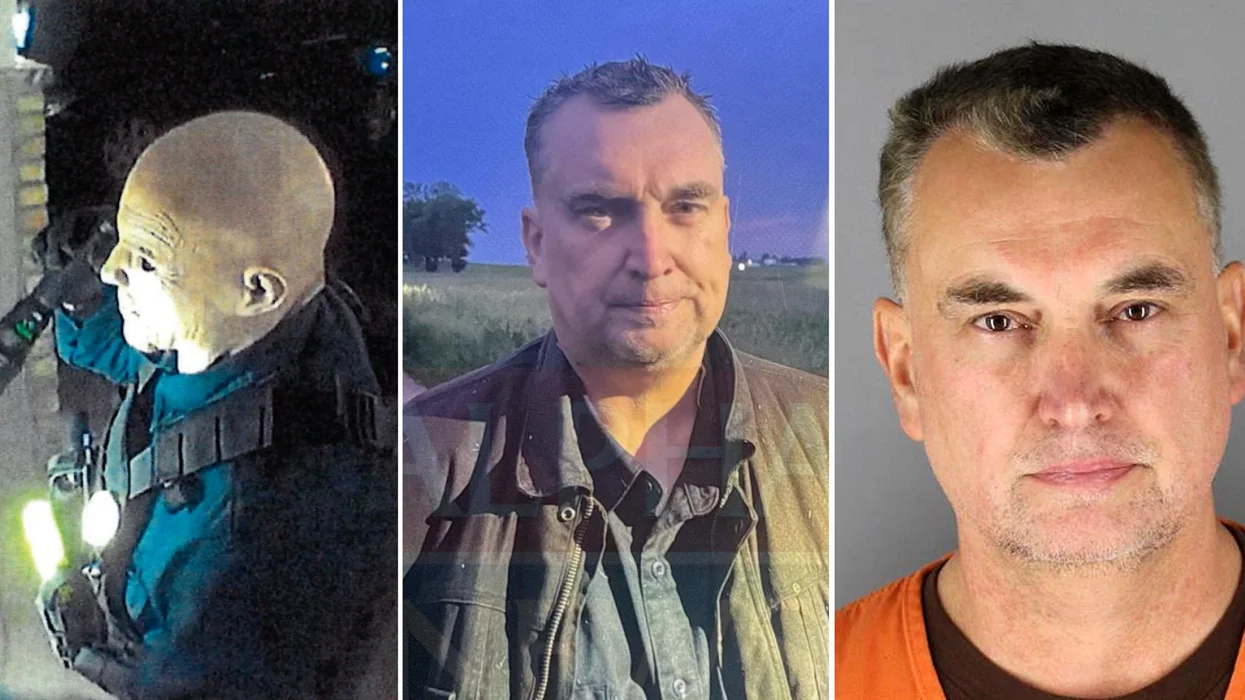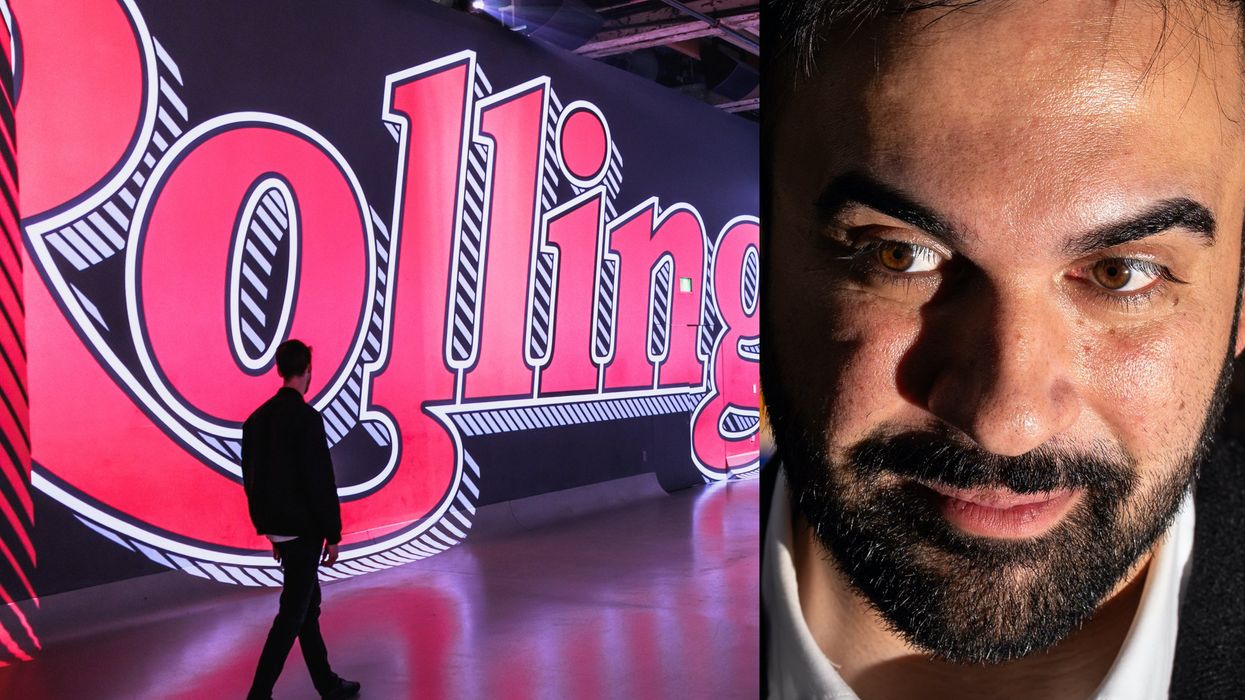 FILE - In this March 12, 2013 file photo, Aurora, Colo., theater shooting suspect James Holmes sits in the courtroom during his arraignment in Centennial, Colo. On Monday, April 1, 2013, prosecutors said they will seek the death penalty against Holmes. Credit: AP
FILE - In this March 12, 2013 file photo, Aurora, Colo., theater shooting suspect James Holmes sits in the courtroom during his arraignment in Centennial, Colo. On Monday, April 1, 2013, prosecutors said they will seek the death penalty against Holmes. Credit: AP
CENTENNIAL, Colo. (AP) -- A psychiatrist who treated James Holmes told campus police a month before the Colorado theater attack that Holmes had homicidal thoughts and was a danger to the public, according to documents released Thursday.
Dr. Lynne Fenton, a psychiatrist at the University of Colorado, Denver, told police in June that the shooting suspect also threatened and intimidated her. It was more than a month before the July 20 attack at a movie theater that killed 12 and injured 70.
In the days after the attack, campus police said they had never had contact with Holmes, who was a graduate student at the university.
But campus police Officer Lynn Whitten told investigators after the shooting that Fenton had contacted her. Whitten said Fenton was following her legal requirement to report threats to authorities, according to a search warrant affidavit.
"Dr. Fenton advised that through her contact with James Holmes she was reporting, per her requirement, his danger to the public due to homicidal statements he had made," the affidavit said.
Whitten added that Fenton said she began to receive threatening text messages from Holmes after he stopped seeing her for counseling, the documents said.
Whitten did not immediately respond to messages left at her home and office. University spokeswoman Jacque Montgomery said she could not comment because the school had not reviewed the court records.
The indication that a psychiatrist had called Holmes a danger to the public gave momentum to Democratic state lawmakers' plans to introduce legislation to further restrict mentally ill people from buying guns. State Rep. Beth McCann initially cited the information Thursday as a reason she would introduce a bill as soon as Friday, but quickly backed off and said no date has been set.
The theater massacre already helped inspire a new state ban on large-capacity firearm magazines.
 CENTENNIAL, CO - SEPTEMBER 20: In this photo provided by the Arapahoe County Sheriff's Office, James Holmes poses for a booking photo September 20, 2012 in Centennial, Colorado. Holmes is charged with 24 counts of murder and 116 counts of attempted murder in the July 20, shooting rampage at an opening night screening of 'The Dark Knight Rises' in Aurora, Colorado. Credit: Getty Images
CENTENNIAL, CO - SEPTEMBER 20: In this photo provided by the Arapahoe County Sheriff's Office, James Holmes poses for a booking photo September 20, 2012 in Centennial, Colorado. Holmes is charged with 24 counts of murder and 116 counts of attempted murder in the July 20, shooting rampage at an opening night screening of 'The Dark Knight Rises' in Aurora, Colorado. Credit: Getty Images
Prosecutors have suggested Holmes was angry at the failure of a once promising academic career, and had stockpiled weapons, ammunition, tear gas grenades and body armor. Chief Deputy District Attorney Karen Pearson said Holmes failed a key oral exam in June, was banned from campus and began to voluntarily withdraw from the school.
Holmes last week offered to plead guilty in the attacks. Prosecutors rejected that offer and announced Monday they would seek the death penalty.
The new details were in previously sealed documents that the new judge overseeing the case ordered released Thursday. Media organizations, including The Associated Press, had argued that a "wealth of information already made public in the proceedings thus far," so there was no basis for the documents to remain sealed.
The document that included the threats to the psychiatrist was filed to obtain the contents of a package Holmes sent to her before the attack. That package included a notebook that the newly released documents describe as like a "journal."
The package was dated July 12 - eight days before the massacre - but was found four days after the attack, in the university mail room. It included a note with an "infinity design" and burnt $20 bills.
Other court documents described Holmes' behavior after police found him, still clad in ballistic gear, leaving the theater after the attack. After Holmes' arrest, one officer asked if anyone was with him.
Holmes, who was carrying $280 in cash and credit cards, replied: "It's just me."
He warned detectives that his apartment had booby-traps, which took days for authorities to disarm. When police informed Holmes of his rights to an attorney, he asked for one, ending their interview with him.
The records show that police collected more than 100 items of evidence from the apartment, including included 50 cans and bottles of beer, a Batman mask, paper shooting targets and prescription medications to treat anxiety and depression. Holmes' attorneys have said he is mentally ill.
The documents - including arrest and search warrant affidavits - were unsealed Thursday by District Judge Carlos Samour, who took over this week after the previous judge, who had sealed the documents, removed himself.
Judge William Sylvester had said prosecutors' decision to seek the death penalty against Holmes meant the case would take up so much time that he couldn't carry out his administrative duties as chief judge of a busy four-county district.
Both prosecutors and defense attorneys had raised concerns about releasing the documents. Prosecutors said they were worried about the privacy of victims and witnesses if the records were released. Attorneys for Holmes said they didn't want to hurt his chances for a fair trial.
Sylvester had said he was reluctant to release the documents before the preliminary hearing, when prosecutors laid out evidence on whether Holmes could be brought to trial. After that hearing occurred in January, Samour said lawyers failed to show that releasing the records would cause any harm, or that keeping the documents sealed would prevent any harm.

 FILE - In this March 12, 2013 file photo, Aurora, Colo., theater shooting suspect James Holmes sits in the courtroom during his arraignment in Centennial, Colo. On Monday, April 1, 2013, prosecutors said they will seek the death penalty against Holmes. Credit: AP
FILE - In this March 12, 2013 file photo, Aurora, Colo., theater shooting suspect James Holmes sits in the courtroom during his arraignment in Centennial, Colo. On Monday, April 1, 2013, prosecutors said they will seek the death penalty against Holmes. Credit: AP





